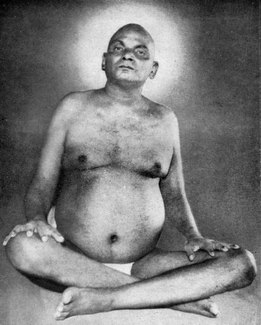Philosophy 307
Philosophies of India
Class Information
CONTENTS: Class Syllabus,
Click here for: Library eReserves
Warren Z. Weinstein -- Philosophy Department -- Office: MHB-910
Office Hours:
![]() Send Me Mail , Back to: My Home Page ,
Send Me Mail , Back to: My Home Page ,
Go to: Grading Rubric
 PHILOSOPHY 307 - PHILOSOPHIES OF INDIA
PHILOSOPHY 307 - PHILOSOPHIES OF INDIA
CLASS SYLLABUS
SPRING 2010 | ||
Section | Meeting Times | Location |
01 | Tu, Th: 9:30AM to 10:45AM | LA1-304 |
Texts:
Radhakrishnan, A Sourcebook in Indian Philosophy
Zimmer, Philosophies of India
Multiple readings available from CSULB Library eReserves
General:
This course will trace the core of Indian Philosophy from the dawn of history, through the development of the orthodox and heterodox traditions, to the emergence of the great medieval schools.
Objectives:
Students will be able to discuss, interpret and apply the concepts and arguments associated with the major issues in Indian philosphy. As the goal of Indian philosophy is to experience the teachings in real life, each student will undertake some practical discipline or practice, suitable to his/her temperament and life situation, which will afford the student a personal experience of what Indian philosophy is about.
Course Outline:
Unit 1. Introductory: Time; Maya; East vs. West; Aims of Life; Orthodox vs. Heterodox
Unit 2. Vedic Period: The Vedas; The Upanishads
Unit 3. Early Post-Vedic Period: Shankya; Yoga; Bhagavad-Gita; Early Buddhism;
Unit 4. Age of the Systems: Later Buddhism; Charvaka; Nyaya; Vaisheshika; Advaita Vedanta
Grading:
There will be exam midterm exam worth 33%, a practical application project worth 33%, and a cumulative two-hour final exam worth 34%. The project will require the submission of two papers, a proposal/justification (1-2 pages) and a summary/analysis of results (6-8 pages). Except for documented, serious and compelling reasons, no make-up exams will be given. A grading curve will be applied at the end of the semester, with extra-credit awarded for active and effective classroom participation.
Attendance Policy:
Attendance at all meetings is mandatory. Absences due to illness, death in the family, or participation in university-sponsored events may be excused if a student provides timely documentation. Accumulation of three weeks of unexcused absences will result in a grade of “F”. Attendance will be taken at the beginning of each meeting. Late arrivals are responsible for checking in before leaving class that same day . Failure to check in by the end of class will be considered an unexcused absence.
Plagiarism/Cheating:
Students should read the university policy on Cheating and Plagiarism in the CSULB Catalog. Penalties for these offenses include “a failing final grade” and “possible probation, suspension, or expulsion.”
Accommodation:
It is the student’s responsibility to notify the instructor in advance of the need for accommodation of a university-verified disability.
Withdrawal:
Standard university policies apply. See CSULB Catalog. Standard university policies apply. See CSULB Catalog.
PHILOSOPHY 307 - PHILOSOPHIES OF INDIA
READING ASSIGNMENTS
Texts:
Radhakrishnan, A Sourcebook in Indian Philosophy
Zimmer, Philosophies of India
Multiple readings available from CSULB Library eReserves
Unit 1. Introductory
Wk#1: Radhakrishnan, General Introduction, pp. xvii-xxxi
eRes, Personal Beliefs (Palmquist)
eRes, The Four Yogas, (Vedanta Society)
Wk#2: eRes, Domestication and the Dream of the Planet (Ruiz)
eRes, Eternity and Time (Zimmer)
Zimmer, Meeting of East and West, pp. 1-47
Wk#3: Zimmer, Foundations of…, pp. 48-83; Success, Sec: 4,5, pp. 105-118; Pleasure and Duty, pp. 140-177
Unit 2. Vedic Period
Wk#4: Radhakrishnan, The Vedas, Sec: Intro., 2,3,4, pp. 3-5,16-31
Zimmer, Veda, pp. 333-355
Wk#5 PROJECT PROPOSALS DUE: FIRST MEETING OF WEEK 5
Radhakrishnan, The Upanishads, Sec: Intro.,3-6,, pp. 37-39, 42-56
Zimmer, Upanishad, pp. 355-378
Wk#6: Radhakrishnan, The Upanishads, Sec: 9,, pp. 64-76
Unit 3. Early Post-Vedic Period
Wk#7: Radhakrishnan, Shankya, Yoga, Examine pp. 424-485
Zimmer, Shankya-Yoga, pp. 280-332
Wk#8: Radhakrishnan, The Bhagavad-Gita, Sec: 1-9: pp. 102-134
Zimmer, Bhagavad-Gita, pp. 378-409
Wk#9: Radhakrishnan, The Bhagavad-Gita, Sec: 10-18: pp. 135-164
Wk#10: MIDTERM EXAM: FIRST MEETING OF WEEK 10
Wk#11: Radhakrishnan, Hinayana, Sec: 1-5, 7.1-7.3: pp. 272-288, 292-295
Zimmer, Buddhism, Sec: 1, pp. 464-487
Unit 4. Age of the Systems
Wk#12: Radhakrishnan, Mahayana, Examine pp. 340-346
Zimmer, Buddhism, Sec: 2-5, pp. 488-559
Wk#13: Radhakrishnan, Intro. to Orthodox Systems, pp. 349-355; Charvaka, Nyaya, Vaisheshika , Examine pp. 227-249, 356-423
Wk#14: Radhakrishnan, Non-Dualism of Shankara, Examine pp. 506-543
Zimmer, Vedanta,, pp. 409-463
Wk#15 PROJECT RESULTS DUE: FIRST MEETING OF WEEK 15
===
INAL EXAM: See Final Exam Schedule
WEEKLEY CALENDAR, S '10 | |
Week 1 | 01/25 - 01/29 |
Week 2 | 02/01 - 02/05 |
Week 3 | 02/08 - 02/12 |
Week 4 | 02/15 - 02/19 |
Week 5 | 02/22 - 02/26 |
Week 6 | 03/01 - 03/05 |
Week 7 | 03/08 - 03/12 |
Week 8 | 03/15 - 03/19 |
Week 9 | 03/22 - 03/26 |
Spring Break: 03/28 - 04/02 | |
Week 10 | 04/03 - 04/09 |
Week 11 | 04/12 - 04/16 |
Week 12 | 04/19 - 04/23 |
Week 13 | 04/26 - 04/30 |
Week 14 | 05/03 - 05/07 |
Week 15 | 05/10 - 05/14 |
PROF. WEINSTEIN'S FURLOUGH DAYS, SPRING 2010
Friday, January 29
Tuesday, February 9
Monday, February 15
Wednesday, March 10
Friday, March 26 - Campus Closed
Thursday, April 15
Wednesday, April 21 - Campus Closed
Thursday, May 6 - Campus Closed
Friday, May 14

